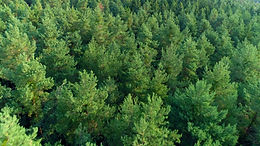
aCFDLab
Applied CFD Research and Engineering Design Consultancy

Directorof ACFDLab

Particle Separator
Welcome to the ACFDLab Research Center.
ACFDLab Research Center is an open platform type thermal and fluid flow analysis research center established in November 2022 at Seoul National University of Science and Technology to support R&D in the industry. This center is based on the analysis research team of the Industry-University Cooperation Foundation's Electric Vehicle Performance Evaluation Center at SeoulTech.
Thermal and fluid flow engineering experts gathered and started research support activities in terms of knowledge sharing to help domestic SMEs develop technologies and products. Based on our analysis experience accumulated over the past 24 years, we strive to provide engineering solutions that companies require, from the initial design stage to the optimization design of mechanical component parts and systems required in all fields of industry, such as machine industry, aerospace industry, marine engineering, construction, and air conditioning. To that end, we commit to providing engineering solutions for small and medium-sized businesses through collaboration with domestic and international professional engineering teams.
We are requesting your interest in the small and medium-sized businesses that require assistance.
Thank you.
November 1, 2022
Engineering Problems
Published International Journal in 2022
Design of Air-cooled Battery Thermal Energy Management System for Eco-friendly Vehicles

Due to the chemical reaction of battery elements and internal resistance, the battery releases heat during charging and discharging. Unless this heat is controlled to be within the battery's optimum operating temperature, the battery's performance and life will be seriously affected. This paper is dedicated to conduct fundamental studies on battery cooling. A three-dimensional numerical analysis is made using PHOENICS version 2018.
The CFD Analysis for the Fatigue Life Evaluation of HRSG Structure

Heat recovery steam generator (HRSG) generates steam using the high-temperature exhaust energy of gas turbines. Structures of HRSG are damaged by flow-induced vibration of flue gas in some cases. In order to evaluate fatigue life to predict damage to a structure, a vibration analysis caused by flue gas should be used to derive the Power Spectral Density (PSD). However, it is very difficult to experimentally derive the vibrations generated by the exhaust gas form of gas turbines, which is very fast and complex. It established a way to identify vibration characteristics depending on the structure's location by using high computing resources, and large eddy simulation (LES). Random vibration analysis through these vibration characteristics (PSD) can evaluate the fatigue life of a structure.
Aerodynamic Characteristics of Heavy-Duty Vehicles Platooning for Energy Savings and CO2Reduction

This study aims to analyze the aerodynamic interaction between moving vehicles platooning with the change in the platooning conditions on a freeway. The effect of the vortex generated by the forward vehicle reduces the value of the stagnation pressure generated at the front of the rear vehicle, which effectively reduces drag on the driving vehicle.
Copyright © A CFD Research Laboratory (ACFDLAB). All Rights Reserved.
Company registration number 632-59-00843.
Registered address as here.

